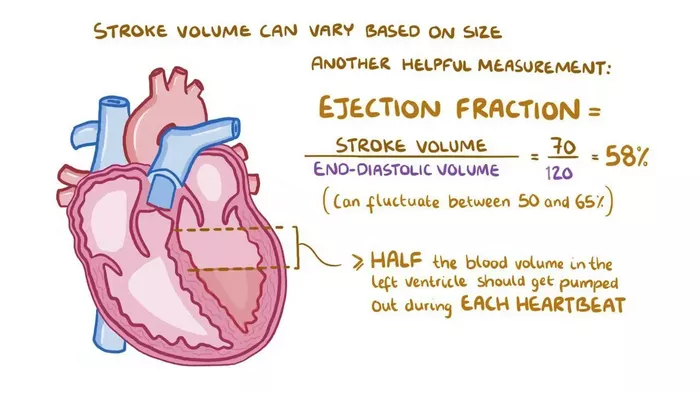Hyperlipidemia, characterized by elevated levels of lipids (fats) in the blood, is a common metabolic disorder associated with an increased risk of cardiovascular disease. As individuals seek ways to manage their lipid levels and improve their overall health, questions arise about the role of hydration, specifically water intake, in the management of hyperlipidemia. In this article, we delve into the scientific evidence to determine whether drinking water can help mitigate hyperlipidemia and its associated risks.
What Is Hyperlipidemia?
Before exploring the potential impact of water intake on hyperlipidemia, it is essential to understand the nature of this condition. Hyperlipidemia encompasses elevated levels of cholesterol, triglycerides, or both in the bloodstream. These lipids are essential for various physiological functions, but excessive levels can lead to the accumulation of plaque in the arteries, increasing the risk of atherosclerosis, heart attack, and stroke.
What Is The Effect of Drinking Water on Hyperlipidemia?
Drinking more water is one of the most effective ways to thin your blood and reduce blood lipid concentrations. Each adult needs an intake of about 1500ml per day. If you just drink water, it will not actually have a very good effect on dissolving blood clots and accelerating lipid metabolism. Adequate hydration is vital for optimal organ function and cellular metabolism.
Hydration And Lipid Metabolism
While hydration is undoubtedly important for overall health, its direct impact on lipid metabolism and hyperlipidemia is less clear. Some theories suggest that increasing water intake may help facilitate the excretion of lipids from the body, thereby reducing circulating lipid levels. However, the evidence supporting this hypothesis is limited and inconclusive.
Clinical Studies And Research Findings
Numerous studies have investigated the potential association between water intake and lipid levels, but the results have been mixed. Some studies have suggested a modest inverse relationship between water consumption and lipid levels, particularly in individuals with preexisting hyperlipidemia. These studies often rely on self-reported dietary intake and may be subject to confounding variables.
Mechanisms of Action
The mechanisms by which water intake might influence lipid metabolism are not fully understood. One proposed mechanism involves the role of water in facilitating the breakdown and excretion of lipids through urine and feces. Additionally, adequate hydration may support liver function, which plays a central role in lipid metabolism and cholesterol synthesis.
Hydration And Weight Management
Maintaining a healthy weight is essential for managing hyperlipidemia and reducing cardiovascular risk. Adequate hydration may support weight management efforts by promoting satiety, enhancing metabolism, and reducing calorie intake from sugary beverages. However, the impact of water intake on lipid levels independent of its effects on weight remains uncertain.
Practical Recommendations
While the evidence linking water intake to hyperlipidemia is inconclusive, staying hydrated is undoubtedly beneficial for overall health. Health experts recommend consuming an adequate amount of water daily, typically around 8 glasses (64 ounces) for most adults, although individual hydration needs may vary based on factors such as age, sex, activity level, and climate.
Comprehensive Approach to Hyperlipidemia Management
Managing hyperlipidemia requires a multifaceted approach that encompasses lifestyle modifications, dietary interventions, physical activity, and, in some cases, medication. While staying hydrated is an essential component of a healthy lifestyle, it is unlikely to be a standalone solution for managing lipid levels.
Conclusion
In conclusion, the relationship between water intake and hyperlipidemia is complex and multifactorial. While hydration is crucial for overall health and well-being, the evidence supporting its direct impact on lipid metabolism and hyperlipidemia is limited.
Individuals with hyperlipidemia should focus on comprehensive lifestyle modifications, including :
- a balanced diet
- regular physical activity
- weight management
- if necessary, medication adherence
By adopting a holistic approach to hyperlipidemia management, individuals can optimize their lipid levels and reduce their risk of cardiovascular disease.
FAQs
How to treat hyperlipidemia?
Lifestyle modifications:
Dietary changes: Focus on a heart-healthy diet rich in fruits, vegetables, whole grains, lean proteins (such as fish, poultry, beans, and legumes), and healthy fats (such as those found in avocados, nuts, seeds, and olive oil). Limit saturated fats, trans fats, cholesterol, and added sugars.
Regular exercise: Aim for at least 150 minutes of moderate-intensity aerobic exercise or 75 minutes of vigorous-intensity aerobic exercise per week, along with muscle-strengthening activities on two or more days per week.
Weight management: Achieving and maintaining a healthy weight can help improve lipid levels. Losing even a modest amount of weight can have a positive impact.
Quit smoking: Smoking can lower HDL (good) cholesterol levels and increase the risk of heart disease. Quitting smoking can improve lipid profiles and overall cardiovascular health.
Medications:
Statins: These medications are commonly prescribed to lower LDL (bad) cholesterol levels. They work by blocking an enzyme in the liver that produces cholesterol.
Ezetimibe: This medication can help lower LDL cholesterol by blocking its absorption in the intestines.
PCSK9 inhibitors: These injectable medications are typically used in people with very high LDL cholesterol levels or those who cannot tolerate statins.
Fibrates, niacin, and bile acid sequestrants: These medications may be used in certain situations or in combination with statins.
What should patients with hyperlipidemia pay attention to in their daily lives?
People with hyperlipidemia should pay attention to their daily dietary choices, engage in regular physical activity, avoid smoking, manage stress, and adhere to any prescribed medications. They should also be aware of the potential side effects of medications and discuss any concerns with their healthcare provider.
Which groups of people are prone to hyperlipidemia?
Certain groups of people are more prone to hyperlipidemia, including those with a family history of the condition, individuals who are overweight or obese, people with diabetes, those with an unhealthy diet high in saturated and trans fats, individuals who are physically inactive, and those who smoke. Additionally, some medical conditions and medications can contribute to or exacerbate hyperlipidemia. It’s essential for these high-risk groups to prioritize lifestyle modifications and regular health screenings to manage their lipid levels and reduce their risk of cardiovascular disease.

